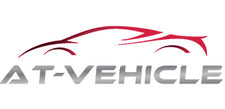86-551-65828103
service@at-vehicle.com
Anhui vehicle Import and Export Co. Ltd.
Ultimate Guide
Q: What is the difference between an SUV and a hatchback?
A: An SUV has raised suspension that means it sits higher off the ground than a hatchback. You might hear it described as ‘higher ride height’ or ‘extra ground clearance’. This extra height gives the space needed to drive over rough terrain. It also means that you sit higher, which generally gives you a better view of the road than you get in a hatchback or saloon. It can also make getting in and out easier. SUV also tends to have more upright, box-like bodies than a hatchback or saloon, which means they often give you more passenger and boot space. Many larger SUVs are also available with seven seats, whereas most larger hatchbacks or estates have only five.
Q: What’s the difference between an SUV and a crossover?
A: The terms ‘crossover’ and ‘SUV’ are pretty much interchangeable. Some car brands, and some people, simply prefer the word ‘crossover’. If anything sets crossovers apart from SUVs it's that crossovers are generally slightly smaller and lower, and even less likely to have four-wheel drive. Many cars classed as crossovers aren’t available with four-wheel drive at all, whereas traditional SUVs are likely to have it as standard or as an option.
Q: Why are SUVs so popular?
A: There are several reasons for the popularity of SUVs. They are often more spacious and practical than an estate car or hatchback of similar size. Their raised suspension and higher seating position can make access easier for people with mobility problems and mean that you don’t have to bend down to put your kids in child seats. A lot of people just like the view you get when sitting higher up, while many like the tough image of an SUV or the feeling of safety that a bigger, bulkier car can give you.
Q: Do all SUVs have four-wheel drive?
A: Some SUVs have four-wheel drive and others don’t. Many smaller SUVs have front-wheel only, with four-wheel drive only available for higher-priced versions. Most larger SUVs come with four - wheel drive as standard. Four-wheel drive means the engine sends power to all four wheels – they ‘drive’ the car. It’s useful when going off-road and gives extra safety and reassurance when driving on-road in slippery conditions. Because the engine’s power is spread among four wheels, rather than two, the tires are less likely to lose their grip and spin.
Q: What’s the difference between a 4x4 and an SUV?
A: The term ‘4x4’ is simply another way of referring to four-wheel drive. However, it also used to be applied to the kind of car that is now called an SUV. ‘Off-roader’ was another term used to describe such cars. The terms ‘4x4’ and ‘SUV’ mean much the same thing. Both refer to a car with a higher ride height and bulkier shape than a conventional saloon or hatchback. ‘SUV’ is a more modern, inclusive phrase, however, and while all 4x4s have four-wheel drive, only some modern SUVs do.
Q: Do SUVs have any disadvantages?
A: SUVs cost more to buy than an equivalent hatchback or estate car. Being taller and often heavier, SUVs generally use more fuel and emit more carbon dioxide from their exhausts. So they’ll cost you more in fuel and tax. However, it’s worth noting that some SUVs return very good fuel economy and there are now lots of hybrid SUVs and electric SUVs to choose from.
Q: Why is an SUV better than a car?
A: An SUV may be better than a smaller car for some lifestyles as they are often safer, more practical, and equipped with a range of technology. This allows them to complete a range of tasks easily, including anything from the weekly shop to active adventures in the countryside.
- Choosing a selection results in a full page refresh.
